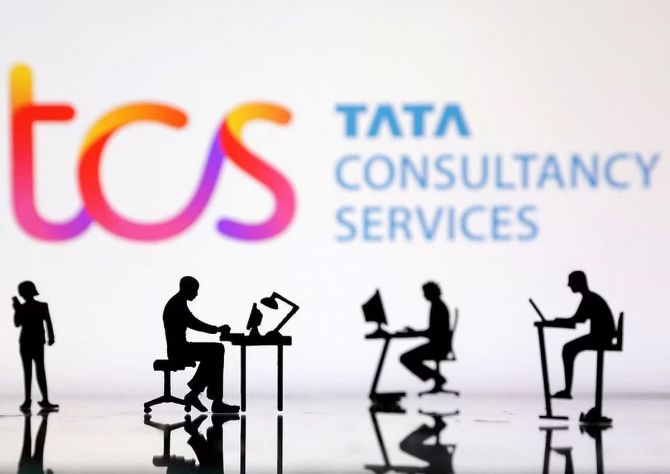India's largest IT services firm Tata Consultancy Services on Thursday reported a 1.68 per cent dip in its consolidated net profit to Rs 12,224 crore for the March 2025 quarter.

Tata Consultancy Services (TCS) - whose earnings marked the official start of IT results season - reported a total revenue of Rs 64,479 crore in Q4 FY25, up 5.3 per cent over the year-ago period.
For the full year FY25, TCS' net profit rose 5.76 per cent year-on-year to Rs 48,553 crore.
The IT heavyweight wrapped up the fiscal FY25 with a full-year topline growth of 5.99 per cent at Rs 2,55,324 crore.
Chief executive K Krithivasan said: "We are pleased to cross the $30 billion in annual revenues and achieve a strong order book for the second consecutive quarter"
TCS' expertise in AI and Digital Innovation, coupled with the knowledge of customer context and global scale, make the company a pillar of support for customers in this environment of macroeconomic uncertainty, he added.
"We remain committed to staying close to our customers and helping them achieve their core priorities," he said.
Milind Lakkad, chief HR officer of TCS, said the trainee onboarding in FY25 was 42,000 as planned.
Meanwhile, the TCS board has recommended a final dividend of Rs 30 per equity share of Re 1 each of the company.
TCS' Q4 report card comes amid storm clouds over the global economy triggered by US now-on, now-off tariff posturing that has thrown the world into a tizzy.
After days of stock market rout globally, and in the US, President Donald Trump declared, just hours ago, a three-month pause on reciprocal tariffs.
The breather marked a rather unexpected U-turn after the stiff levies he imposed, which led to a global stock market meltdown that erased trillions of dollars in investors' wealth.
For now, the rates for India and other countries will revert to a baseline of 10 per cent, although Trump has raised tariffs on China, one of America's biggest trading partners, to a staggering 125 per cent after Beijing vowed a fresh trade offensive.
The tariffs per se are on goods that US imports, and do not have a direct bearing on Indian IT services companies, but they do cloud the outlook for the industry, which caters extensively to American clients.
Earlier this month, when the US announced sweeping tariffs for countries across the world, including allies and major trade partners, IT pundits warned that a slowdown in decision-making and GDP growth in America over hefty tariffs may stifle tech demand and discretionary spending from specific verticals.
Retail and manufacturing verticals were being called out as particularly vulnerable.
While analysts will be keenly watching out for management cues from the $250-billion Indian IT pack's assessment of the trade situation as it unfolds in coming quarters (as well as the trade negotiations in the offing that could sway equations) some are indeed hopeful that macro woes would nudge more American companies to chase efficiencies through outsourcing deals and tech adoption in the long-term.











 © 2025
© 2025